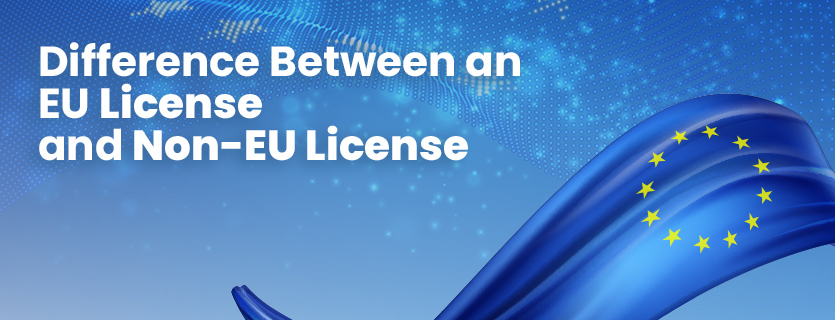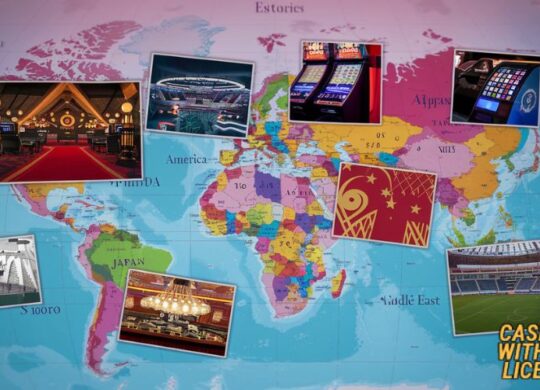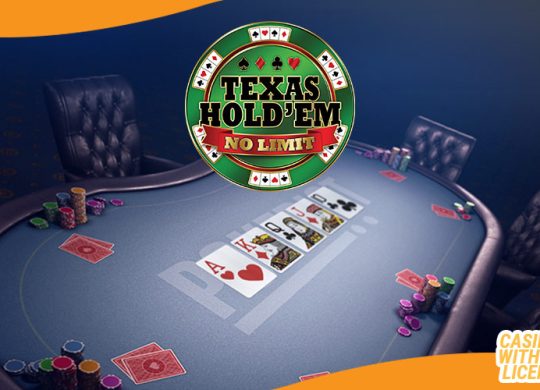Understanding the Difference: EU license and non-EU license
The majority of the EU countries have legalized some forms of gambling within their jurisdiction. This guide covers gambling regulations in major European countries and how they are different from the non-EU regulations. Whether you are an operator or a player, this guide will help you in comparing the EU and non-EU licenses and which one would be the best for your business or entertainment.
Europe has many members that regulate online gambling within their jurisdiction. The European Gaming and Betting Association (EGBA) regulates the European gambling market and makes sure that operators offer fair and competitive products. Currently, EGBA has only a few members, which we can expect to grow with time.
EU Countries With Licensing Authorities
Mostly, the EU members have an authority that offers gambling licenses to operators within their territory. Here we are going to provide you with valuable information about these EU authorities. Europe is the largest market for online gambling.
Each EU member has established their own authority to regulate gambling. Some states allow foreign operators to get a license under their authority, while some grant licenses to only a single entity. Let’s find out the authorities responsible for online gambling in different EU countries.
Estonia
The Estonian Tax and Customs Board regulates all forms of gambling activities in Estonia. This authority is also responsible for licensing individual gambling operators and businesses within Estonia. The two main laws governing online gaming in the country are Gambling Act and the Gambling Tax Act.
As Estonia is a member of the European Union, its gambling laws should be in accordance with the EU regulations. The Estonia Tax and Customs Board started issuing licenses to the online gambling companies in 2010. All offshore casino companies who want to operate in Estonia must have an Estonian license.
Malta
The Malta Gaming Authority is one of the most reputed regulators out there. MGA was established in 2001 and is one of the oldest gambling authorities in the world. Casino businesses that want to operate in the EU market can get a license from the Malta Gaming Authority. Players from all over the globe find MGA casinos most reliable and credible.
The MGA license is one of the most prestigious and expensive gambling licenses. Many casino companies start their business with other licenses and then apply for a Malta Gaming license. MGA offers both B2C and B2B gambling licenses to different casino businesses. Similar to the UKGC, the Malta Gaming Authority also has an open-licensing model.
Also read: 6 new MGA casino with great bonuses
Sweden
Rules regarding gambling in Sweden are different than in other EU countries. The central body that regulates gambling in the country is the Swedish Gambling Authority. This authority does not issue licenses to offshore casino businesses. However, many gambling enthusiasts in Sweden are open to the idea of offshore casinos operating in the country.
The Swedish government ensures the safety and legality of online gambling in the country. The Swedish Gambling Authority issues six different types of licenses for online betting, commercial online gambling, and others.
Also read: Is Gambling Legal in Sweden?
Non-EU Licensing Authorities
Check below the list of non-EU licensing authorities that are also well-known for their services.
Curacao eGaming License
Curacao eGaming license is one of the most popular non-EU gambling licenses among casino operators. This license is considered the best for casino startups and small operators.
The Curacao license is well-known for its cost-effective and easy licensing process. As this license specifies all major payment methods including bitcoin, you will find many bitcoin casinos that are licensed under the Curacao Gambling Authority. Another advantage of having this license is that operators can offer both casino games and sports betting options on the same license.
Kahnawake Gaming Commission
The Kahnawake Gaming Commission is a famous regulatory authority in Canada that issues gambling licenses to different casino businesses. Established in 1999, this authority offers responsible and fair gambling practices to players.
The application process and fees for the Kahnawake Gambling license are comparatively lower than the other EU licenses. The jurisdiction is considered trustworthy and reliable among gambling enthusiasts. The license issued by the Kahnawake Gambling Commission is affordable for many casino startups and small gambling businesses.
Costa Rica Gaming License
The Costa Rica Gaming License allows casino businesses to operate from its jurisdiction. There is no defined license in Costa Rica. However, many casino startups can conduct online gambling activities from Costa Rica.
Some casino companies that operate in Costa Rica offer payments in cryptocurrency. What makes Costa Rica more popular is that the government here is business-friendly and encourages the use of cryptocurrency. For the casinos wishing to operate any crypto gambling business, Costa Rica is the perfect place.
Alderney Gambling Control Commission
Established in 2000, Alderney Gambling Control Commission is an independent and non-political authority that regulates online gambling in the states of Alderney. Although it is closely connected to the UK, Alderney is neither a part of the United Kingdom nor the European Union. Currently, many online casinos and sports betting sites are licensed under the Alderney Gambling Authority.
These gambling businesses are attracted to this regulator because of low taxes and outstanding IT support. Similar to the above-mentioned non-EU authorities, Alderney also ensures player protection, fair gaming, and operator accountability.
Read more: Payment Methods at casinos without a license
Comparison Between EU and Non-EU Gambling Licenses
Check below our comparison between EU and Non-EU gambling licensing authorities. We have reviewed top regulators, Malta Gaming Authority and Kahnawake Gambling Commission, from both the categories and have created a list of comparisons between their features.
Duration to get a license
Usually, Malta Gaming Authority takes more time to issue a gambling license as compared to the Kahnawake Gambling Commission. The duration to get a license from MGA is around 12 weeks, as applicants may also have to go through face-to-face meetings and more paperwork procedures. Kahnawake takes around eight weeks to issue a license, which is quite faster than MGA.
Application process
The process of getting a license from the Malta Gaming Authority is more complex than getting one from other authorities. MGA has set strict criteria for issuing licenses to casino operators. Applicants have to submit all the necessary documents and go through the KYC process to get an MGA license.
On the other hand, the Kahnawake Gambling Commission has a simple process of licensing. There are certain gaming standards and ethics that casino operators need to follow to get a license from Kahnawake.
Cost of Licensing
Among all the gambling licenses, the MGA license is considered the most expensive one. The fees for an MGA license may vary depending upon the types of services a casino offers. Aside from this, operators may have to pay additional taxes. Contrary to that, the Kahnawake license is cost-effective and is cheaper than the MGA license.
Additional benefits
The Malta Gaming Authority allows operators to enter the EU gambling market. With an MGA-issued license, casino operators can also offer their products to players in different countries except for the illegal gambling regions. Moreover, the Malta Gaming Authority charges a 5% tax on the revenue generated from Malta-based players.
On the other hand, the Kahnawake Gambling Commission charges a 0% tax rate on gambling licenses. With a Kahnawake license, online casinos can operate in almost all countries except where gambling is prohibited.
Bottom Line
If we compare Malta Gaming Authority licenses to the licenses from Kahnawake Gaming Commission, MGA licenses are considered better than the others. However, many operators do not prefer MGA licenses due to high fees and taxes. But from the players’ perspective, MGA licenses are best for ensuring player protection. Whichever gambling license you choose, all the EU and non-EU authorities focus on the safety of players, anti-money laundering activities and provide a regulatory framework for online gambling.
Players from Europe consider any EU-licensed online casino as a legit and legal gambling site. For example, players from Sweden consider MGA licensed casinos as unlicensed as the authority is from another country.
This was everything about EU and Non-EU licenses and licensing authorities. Both of these authorities are working hard to maintain their reputation in the online gambling industry and are providing the best licensing services to different operators as well as players worldwide.
Learn how to play: How to play craps dice game










